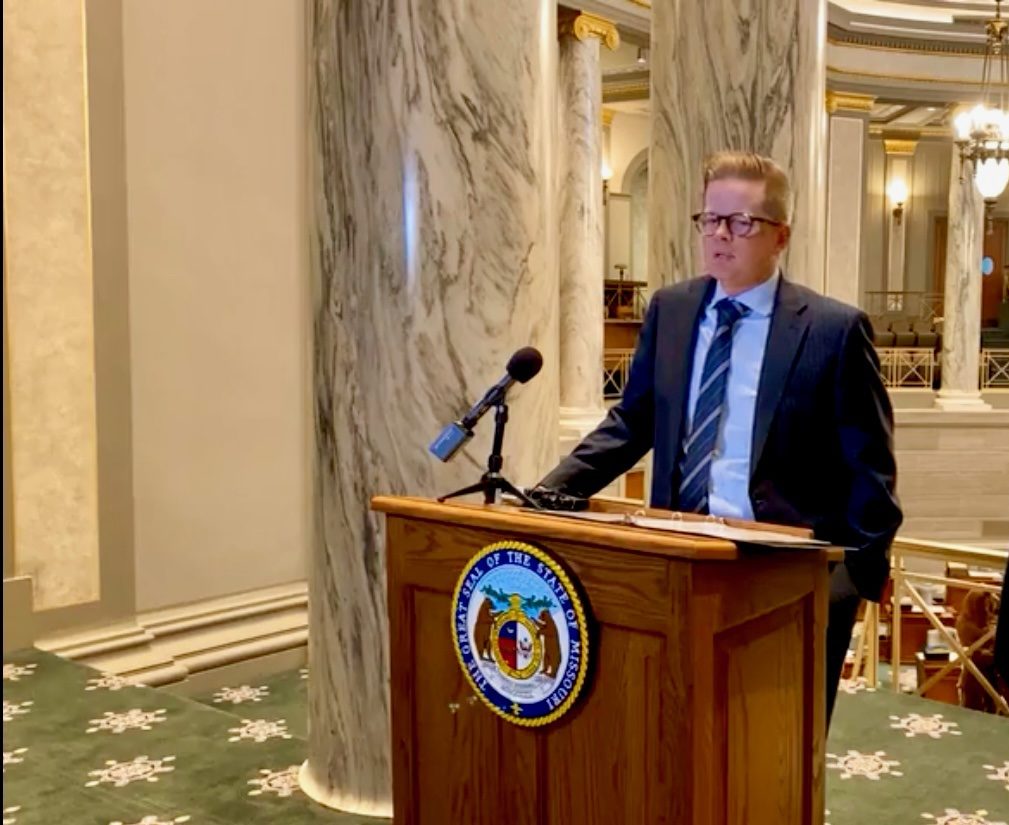JEFFERSON CITY, Mo. — Though an attempt was shot down this week, Senate leadership still sees a possible future for legislation curbing the power of local officials during health emergencies.
SB 12 from Sen. Bob Onder was meant to lessen the power of local officials in response to the situations like the COVID-19 pandemic, allowing entities to order shutdowns for 15 days within a 180-day period before requiring approval from other legislative bodies, among other restrictions. The bill was voted down Thursday morning after nearly eight hours of debate on an amendment sunsetting the restrictions after a year, with nine Republicans joining Democrats in rejecting its perfection.
Despite this setback, Senate President Pro Tem Dave Schatz said the conversation would likely continue in the upper chamber this session.
“I think there’s going to be opportunities for us to continue that conversation,” Schatz told reporters Thursday. “We may not have gotten it done on that bill last night, but I do believe we will drive a point of compromise to the position that we believe gives businesses better protections and also some ability to those elected officials. Those unelected health officials don’t face the same scrutiny as someone that faces an election. … That discussion’s not over.”
One opportunity for further discussion is currently awaiting a hearing in the Senate. HB 75, sponsored by Rep. Jim Murphy, passed out of the House earlier this month and is assigned to the Senate Health and Pensions Committee. Murphy’s bill would impose similar restrictions on shutdown orders, giving the Senate another opportunity to reach a compromise on the issue should it reach the floor.
While Onder’s bill focused on the St. Louis area and included several provisions added through a substitute, Murphy’s bill primarily focuses on the shutdown restrictions. The House version also allows the extension of shutdowns in 10-day increments, while Onder’s language set extensions at 15 days.
The narrow focus of Murphy’s language could be more palatable for lawmakers.
Majority Floor Leader Sen. Caleb Rowden attributed the failure of Onder’s bill to stalled negotiations behind closed doors.
“The Senate is a place of compromise,” Rowden said. “I think a compromise could have been had, but both sides were not interested in getting to that place, so the folks who were against the idea felt like they had enough votes to kill it and they did.”
Minority Floor Leader Sen. John Rizzo agreed the debate would likely surface again, also pointing to a lack of compromise for the death of the bill. He said his party, which held the floor from Wednesday evening to early Thursday morning, was willing to make concessions but negotiations failed to move the bill forward.
“At a certain point in time we do get tired when you’re not moving toward an end goal, and it’s just being volleyed back and forth, especially when you know one side is really making an effort,” Rizzo said. “I don’t think it’s anything that should be put on the bill, so to speak. I do believe we’ll have that debate again and I think a majority of people in that chamber would like to do something about business closures.”

Cameron Gerber studied journalism at Lincoln University. Prior to Lincoln, he earned an associate’s degree from State Fair Community College. Cameron is a native of Eldon, Missouri.
Contact Cameron at cameron@themissouritimes.com.























